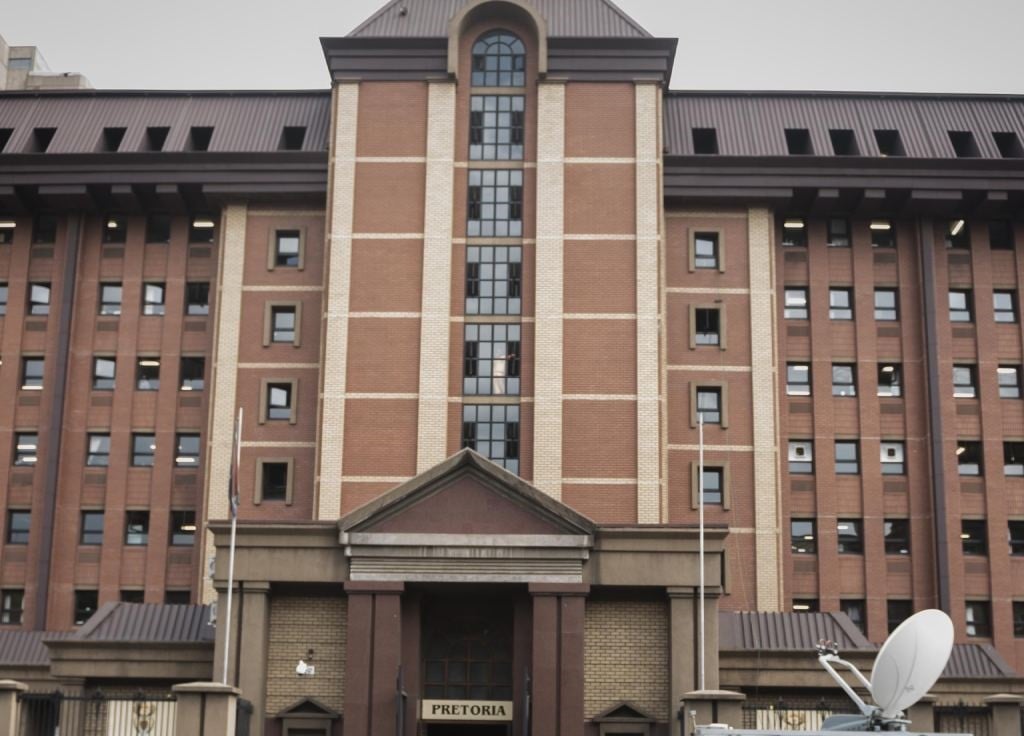


A view of the Pretoria High Court.
Cornel van Heerden, Gallo Images, Beeld, file
Serjeant at the Bar writes that Judge Norman Davis remains an exception among judges in that he went against the grain and delivered a judgment that is legally inexplicable.
One has to doff one’s legal cap to Judge Norman Davis.
In his judgment, which only granted a limited right to appeal against his earlier judgment, which declared invalid the disaster management regulations promulgated under both Level 4 and Level 3 lockdowns, he adhered to the principle of consistency.
He therefore remains an exception among judges, when viewed within the context of a welter of cases involving the dismissal of challenges to a variety of disaster management regulations.
Judge Davis granted leave to appeal only in respect of his decision on a range of regulations which were not analysed specifically by the court. The upshot is that confusion reigns.
Invalid
Some of the regulations that Judge Davis held were beyond the reach of an appeal were Level 4 regulations, or the reasoning that was employed to strike down the regulations was based on Level 4 and not Level 3 regulations. But as the order refusing, in part, leave to appeal is formulated, the exercise regime which is now between 06:00 and 18:00 for groups of no more than four people, restrictions to (as opposed to the prohibition of) the movement of children, restrictions to attendances at funerals, prohibitions of on-site consumption of alcohol, and limitations to domestic air travel are all invalid.
It is difficult to divine the precise nature of the grounds of appeal that were raised by Cooperative Governance and Traditional Affairs Minister Nkosazana Dlamini-Zuma, in particular whether the application by the court of the rationality test was subject to an appeal.
Remember that the test in respect of an application for leave to appeal is not whether the applicant was correct in its arguments but rather whether there is a reasonable possibility that a higher court may come to a different conclusion.
It is all very well being impressed with a phrase, as the court was, that the Level 3 regulations are from the same DNA as the Level 4 or 5 regulations, as was submitted by counsel for the respondents in this application. But the factual matrix at this time was that arguments based on Level 4 regulations were moot. Level 3 regulations now constitutes the framework within which the government seeks to respond to Covid-19 and the text thereof is different, in some cases markedly so, to the earlier regulations.
How, for example, is it irrational in the midst of pandemic to regulate exercise to 12 hours between 06:00 and 18:00 and for groups of four. It is surely a notorious fact that the virus is transferred by droplets, which can spread when someone is in close proximity to an infected person.
Restrictions on group exercise fits in with the science.
Beyond bounds of reasonable possibility
So how can a court say it is beyond the bounds of reasonable possibility that the current restriction may be held by another court to be rational.
The same applies to the other Level 3 regulations.
For example, to have on-site alcohol sold is surely the height of irrationality in the midst of a growing pandemic when, again it is notorious that bars and on site venues which sell alcohol are the most significant vectors for the transmission of the virus.
This latest judgment is, unfortunately, legally inexplicable and becomes more so when compared to the many judgments that have refused to second guess the government’s disaster management strategy. In the interest of balance, some of these judgments have been criticised for being overly deferential to government policy.
But again, to emphasise: the latest judgment of Judge Davis concerned an application for leave to appeal. As such, the question with which a reader is left from this judgment is how can anyone be so sure that another court might not find to the contrary.
Supreme Court of Appeal
The appeal system is central to the accountability of judges. While it is often exploited, such as with a so-called Stalingrad strategy, here is a case which does involve life and death. If the government does not achieve a sensible, workable balance between ensuring that citizens can work so as to stave off poverty and the preservation of life, then, as has occurred in countries like the United States and the United Kingdom, a massive loss of life that could have been prevented occurs. Hopefully the Supreme Court of Appeal will bring expeditious clarity to the legal position.
There is a libertarian streak that runs through the society and South Africa is no different: you cannot tell us what to do, government, because you cannot trench on our precious freedoms. This approach, is sadly, at war with the idea of community of Ubuntu – I care after you and you after me, I am therefore willing to restrict my freedom so that you may live in safety and you will do the same for me. In this way we may negotiate this pandemic. One only has to cast an eye at the United States to see the disaster that comes with the alternative approach.
**Want to respond to the columnist? Send your letter or article to [email protected] with your name, profile picture, contact details and location. We encourage a diversity of voices and views in our readers’ submissions and reserve the right not to publish any and all submissions received.
Disclaimer: News24 encourages freedom of speech and the expression of diverse views. The views of columnists published on News24 are therefore their own and do not necessarily represent the views of News24.

